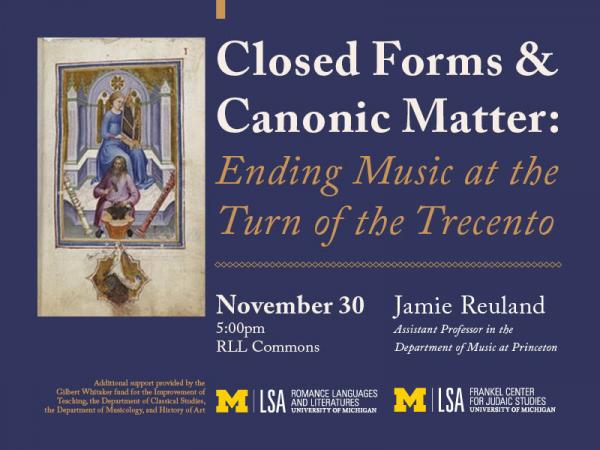Closed Forms and Canonic Matter: Ending Music at the Turn of the Trecento
Professor Jamie Reuland, Princeton University
This paper charts an itinerary of concern about the relation between form and matter in the musical thought and compositional processes of trecento Italy. It takes as its starting point the Cronica of Salimbene of Adam, a neglected source of musical commentary on questions central to fourteenth-century ontologies of music: about the status of the voice as a natural instrument; the reliability of sense perception; and the shadowy affinities between music and language. Salimbene’s vivid, often macabre anecdotes about music’s material and formal properties echo in Dante’s poetics and in the music theory of Marchetto da Padova. I then turn to the compositional practices of trecento composers, to show how the earliest generation of Italian polyphonists imported these concerns into aspects of compositional design in ways that foreground closure as a defining potential of form. The form and forming of sound in the Middle Ages were inevitable correlates to considerations of sound as matter. In making this claim, I mean to contribute to a growing recognition of the links between modern critical practices (here sound studies, the history of the senses) and the intellectual history of the Middle Ages.
| Building: | Modern Languages Building |
|---|---|
| Event Type: | Lecture / Discussion |
| Tags: | Classical Studies, Lecture, Music |
| Source: | Happening @ Michigan from School of Music, Theatre & Dance, History of Art, Judaic Studies, Classical Studies |


